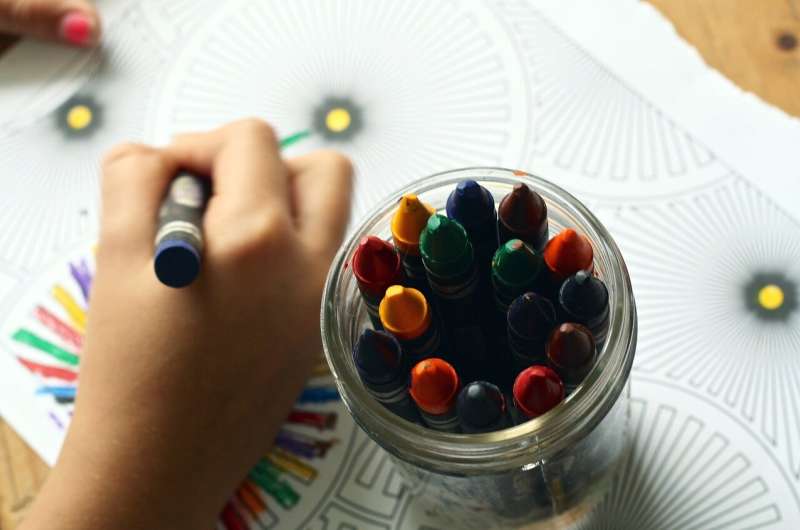Credit: CC0 Public Domain
A team of researchers from several institutions in the U.K., one in the U.S. and one in Spain has found that measures to promote social distancing of school children to reduce COVID-19 exposure reduced contacts on average by 50 to 62% in a study of students in British schools. In their paper published in the journal Royal Society Open Science, the group describes conducting interviews with school staff from 33 schools across Britain regarding contact between students and staff during the current pandemic.
As the pandemic has persisted around the world, social distancing has slowed its spread, as did closing shops and businesses. One point of contention that has arisen among parents and decision makers is the role children may play in the spread of the disease. Prior research has shown that children are prime carriers of diseases such as the cold and flu, and thus researchers assumed they would do the same with COVID-19. Unfortunately, data supporting such assumptions for COVID-19 is in short supply.
Other diseases are spread between children because they touch one another and adults so much. In this effort, the researchers wondered if school administrators and teachers have been able to reduce such contact during in-person schooling. To find out, they spoke with staff at 33 primary schools in England, asking them about the degree of contact during the pandemic compared to pre-pandemic levels.
The researchers found that levels of contact (defined as interactions within 1 meter), as reported by teachers and other staff, dropped dramatically during the pandemic. They found that the number of close contacts for the youngest children dropped from an average of 15 per day to just seven, a 53% drop. For older children, the drop was even higher, from 18 contacts a day down to seven for 10-year-olds—a drop of 62%. They also found that contact with staff was down approximately 60 percent.
The researchers note that their research involved children in school for short periods of time between lockdowns, and thus it is not clear if such behaviors could be maintained over longer periods. It is also still unknown whether children who become infected but show no symptoms are carriers.
More information: R. S. J. Sparks et al. A novel approach for evaluating contact patterns and risk mitigation strategies for COVID-19 in English primary schools with application of structured expert judgement, Royal Society Open Science (2021). DOI: 10.1098/rsos.201566
Journal information: Royal Society Open Science
© 2021 Science X Network























